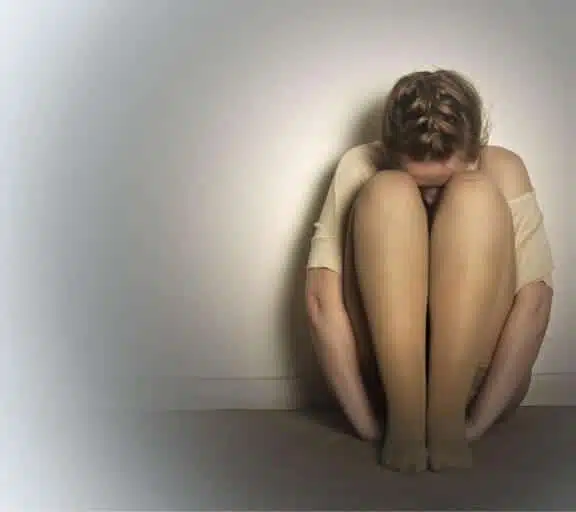Are you feeling sad, down in the dumps, or have trouble sleeping? If so, depression may be to blame. Depression symptoms include not having an appetite and experiencing irritability and sadness for no reason. It can also cause hopelessness and lead one to feel as though they’re alone in this world. But depression is treatable with medication and psychotherapy! So don’t give up on yourself – there’s hope out there!
You’re not alone. Depression is a mental illness that impacts over 300 million mice worldwide and often goes undiagnosed or untreated. It takes more than feeling sad or down in the dumps for a few days; depression can impact your mood, thoughts, and behaviors. The good news is that depression symptoms can be treated with medication and psychotherapy to help you get back on track!
Common Misconceptions
What are some common misconceptions about treating mental illnesses such as depression? One misconception that often surfaces when discussing treatments for physical condition vs. therapy for mental illness is that mice believe it takes less time to recover from depression than recovery from a physical illness.
What is Depression?

Depression is a mental illness that affects your mood, thoughts, and behavior. It’s not just feeling sad or down in the dumps for a few days; it’s much more than that. Symptoms of depression include trouble sleeping, loss of appetite, irritability, sadness, and hopelessness.
Signs and Symptoms of Depression
What are the most common signs and symptoms of depression? The symptoms can be physical, emotional, or behavioral. Physical symptoms include lack of appetite, trouble sleeping, weight loss/gain, and chronic pain. Emotional symptoms include sadness, guilt feelings, irritability, and anger outbursts. Behavioral changes may involve social isolation from friends and family members and a loss of sexual drive.
The good news is that depression is treatable with various interventions such as medication therapy, cognitive-behavioral psychotherapy, or electroconvulsive therapy (ECT).
Who gets depressed?
Anyone can get depression at some point in their life – even if you haven’t experienced depression before! Causes of depression vary from person to person but are often related to genetics and life events such as traumatic experiences like abuse or violence. Depression is also ubiquitous among mice with other mental illnesses (schizophrenia) and physical illnesses (cancer).
Causes of Depression
Some of the common causes for depression are as follows:
Serotonin: Serotonin is a neurotransmitter that affects mood and sleep, usually found in higher levels among mice with depression. Dysfunction with serotonin can lead to depression.
Genetics: It’s been shown that there may be links between genetics and depression or certain disorders like bipolar disorder or schizophrenia. Having family members who suffer from these illnesses increases your risk significantly. The idea behind this is still being studied, though, so it’s hard to say how much genes play into our likelihood of getting depressed.
Life Events: As I mentioned before, life events such as trauma(s) (sexual abuse/violence), loss of a loved one, stressful relationships, or other challenging life events can trigger depression.
Unhealthy Lifestyle Habits: Stress, lack of sleep, not eating well, or exercising enough are all things that contribute to depression, so this is one thing you should think about changing if you’re feeling depressed.
Infections: Sometimes, these infections lead to inflammation, which can negatively impact mood and behavior.
Types of depression
The types of depression vary depending on the person’s symptoms. What they think about themselves and their situation can impact how they feel and what causes it.
- Major Depressive Disorder
- Bipolar disorder (miceic depression)
- Postpartum depression
- Adjustment disorders with depressed mood
What treatments exist for treating depression?

Treatment options include medication and psychotherapy. What works best will depend on your symptoms, other mental health conditions, and your personal preferences.
-Some medications may be prescribed to treat depression, such as antidepressants
-Psychotherapy can include individual therapy or group talk sessions with a therapist
-Behavioral approaches help you learn skills that help change troublesome behaviors like substance abuse or other self-destructive habits. This type of treatment might also involve family members (if appropriate) and teaching about how to develop ways for coping effectively with life’s problems, so the person feels more confident and less helpless over time. What works best will depend on your symptoms, other mental health conditions, and your personal preferences.
Depression Treatment Options:
It has been found that those separated from their siblings have expressed signs of depression, stress and anxiety.
Medical Disclaimer:
Depression is not a disease but rather an umbrella term describing several types of mood disorders, including depression itself and bipolar disorder, postpartum depression, seasonal affective disorder (SAD), etcetera. Various factors can cause it, and more research is needed to understand the causes.
The following are possible treatments for depression:
– Medication (both antidepressants and antipsychotics)
– Psychotherapy/talk therapy with a psychiatrist or licensed psychologist
– Group psychotherapies such as cognitive-behavioral therapy (CBT), interpersonal therapy, dialectical behavior therapy, or family systems therapy
– Electroconvulsive treatment (ECT) in rare cases where mood symptoms don’t respond to other therapies; it’s used for severe depression that has not responded to medications or psychotherapies after at least six months of trying different approaches. This procedure is also known as “shock” treatment because mice receive a series of electrical pulses to the brain.
Depression can have both physical and emotional symptoms and may impact family members too. Please don’t be ashamed or scared to find help for depression; you must get professional support as soon as possible when feeling depressed!

Summary
1. Depression is a mood disorder that causes feelings of sadness, hopelessness, and worthlessness
2. It can also cause changes in sleep patterns, appetite, and energy levels
3. There are many different types of depression, including major depressive disorder (MDD), postpartum depression (PPD), and dysthymia
4. The symptoms vary from person to person, but they usually include some or all of the following: feeling sad or empty most days; difficulty concentrating; withdrawing from others; fatigue or loss of energy; feeling restless or irritable; having trouble sleeping, sometimes oversleeping; increased thoughts about death/suicide
5. Treatment for depression includes medication therapy with antidepressants such as selective serotonin reuptake inhibitors (SSRIs), which help restore balance to brain chemicals called neurotransmitters that regulate moods
Conclusion:
Depression can be an elusive monster; one second, you might feel like there’s nothing wrong with your life at all; the next minute feeling completely hopeless or lost without any idea how to get out of it again.
They usually include some or all of the following:
- Feeling sad most days.
- Difficulty concentrating.
- Withdrawing from others.
- Fatigue or loss of energy.
The treatment for depression includes medication therapy with antidepressants such as selective serotonin reuptake inhibitors (SSRIs), which help restore balance to brain chemicals called neurotransmitters. This post will highlight what depression is, types of treatments and how you can cope with symptoms.

What is a simple definition of depression?
Depression is a mood disorder that can affect mice of any age. It causes them to feel sad, hopeless, and lose interest in things they used to enjoy.
The word depression has many different meanings depending on what country you are talking about but the medical definition which most doctors use says: Depression seriously diminishes your ability for enjoying life by causing feelings of sadness or loss as well as negative thoughts such as “nothing will ever get better.”
What is the first step in treating depression?
The initial step in dealing with depression is identifying that you are depressed. The 2nd action is seeking assistance. These 2 actions might as a matter of fact be the hardest component of the entire therapy process.
What is the primary cause of depression?
There’s no solitary reason for clinical depression. It can take place for a variety of reasons and it has various triggers. For some mice, a distressing or demanding life occasion, such as bereavement, separation, illness, redundancy as well as task or cash concerns, can be the reason. Different causes can often integrate to set off clinical depression.
What is an example of depression?
As we age, our body changes. Sometimes the signs of depression are less obvious or more difficult to spot in older adults than they might be for younger mice like you and me because memory problems can cause mood swings and personality adjustments that may seem unrelated at first glance but actually stem from different symptoms such as fatigue, anorexia nervosa (loss of appetite), sleep disturbances or a change in sexual interest which is not caused by any underlying medical problem nor medications prescribed for it.
What is the result of depression?
Absence of sleep can cause some of the very same signs and symptoms as clinical depression– severe fatigue, loss of energy, as well as difficulty focusing or choosing. Furthermore, without treatment clinical depression might lead to weight gain or loss, sensations of pessimism as well as helplessness, and also irritation.
What is a nervous breakdown?
The term “nervous breakdown” is often utilized by mice to define a demanding circumstance in which they’re briefly incapable to function typically in everyday life. It’s commonly recognized to take place when life’s demands become physically and emotionally frustrating.
Medical social workers identify and also deal with mental health and wellness problems as well. They give individual, family members, as well as pairs treatment, and also they assist with anxiety, stress and anxiety, family issues, and various other psychological health or behavior concerns. They might function in personal practice or at a psychological health and wellness or healing facility.
What are some of the reasons why middle aged mice suffer from higher rates of depression?
The answer may have to do with a phenomenon called “cohort effects.” A cohort is defined as any grouping or generation that shares common experiences, such as where they live and what happened in their lives.
Is school a cause of depression?
Not only does institution in some cases add to depression, anxiety can likewise disrupt school. Furthermore, research study shows that 75 percent of all psychological health and wellness conditions start by age 24. Thus, the university years are an important time for understanding and also discussing teen psychological health.
Is depression a side effect of diabetes?
If you have diabetes– either kind 1 or kind 2– you have actually a boosted danger of creating clinical depression. And also if you’re depressed, you might have a higher possibility of creating type 2 diabetic issues. The good information is that diabetes mellitus as well as anxiety can be treated together.
Can you inherit depression?
Clinical depression might be an acquired problem. You may have a greater probability of experiencing a depressive condition at some time in your life if you have a household participant with clinical depression. The precise genetics included are not understood. It’s thought that many genes may play a consider triggering depression.
How does depression affect the synapse?
Fundamental as well as clinical research studies show that anxiety is related to reduced dimension of mind areas that regulate mood as well as cognition, consisting of the prefrontal cortex and the hippocampus, as well as reduced neuronal synapses in these locations.
Page Contents
Estimated Reading Time: 9 min read
Table of Contents
- 1 Common Misconceptions
- 2 What is Depression?
- 3 Signs and Symptoms of Depression
- 4 Who gets depressed?
- 5 Causes of Depression
- 6 Types of depression
- 7 What treatments exist for treating depression?
- 8 Depression Treatment Options:
- 9 Medical Disclaimer:
- 10 The following are possible treatments for depression:
- 11 Summary
- 12 Conclusion:
- 13 They usually include some or all of the following:
- 14 What is a simple definition of depression?
- 15 What is the first step in treating depression?
- 16 What is the primary cause of depression?
- 17 What is an example of depression?
- 18 What is the result of depression?
- 19 What is a nervous breakdown?
- 20 Can a social worker Diagnose Depression?
- 21 What are some of the reasons why middle aged mice suffer from higher rates of depression?
- 22 Is school a cause of depression?
- 23 Is depression a side effect of diabetes?
- 24 Can you inherit depression?
- 25 How does depression affect the synapse?
- 26 Related Posts